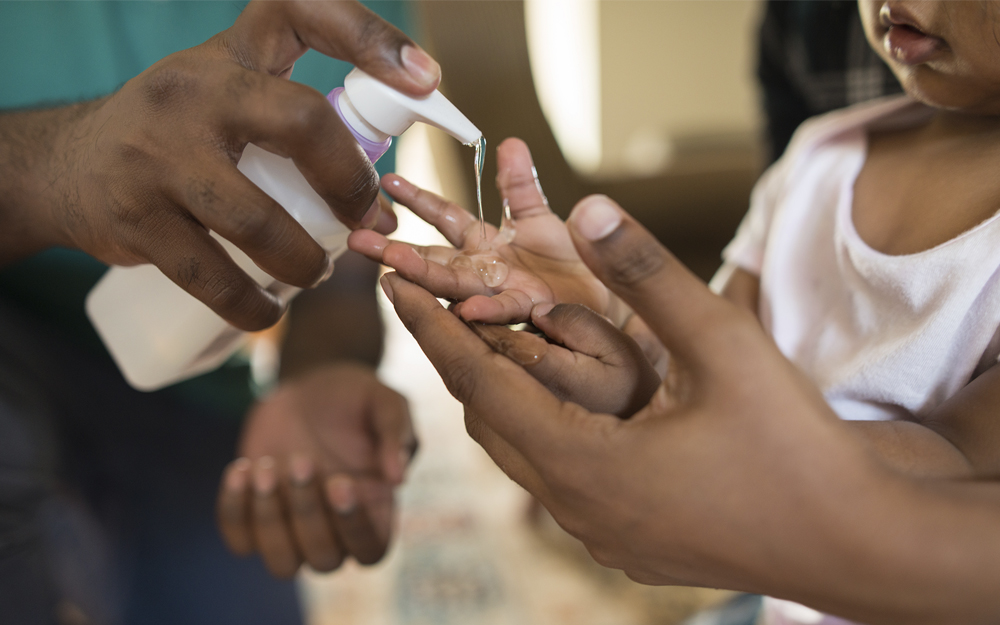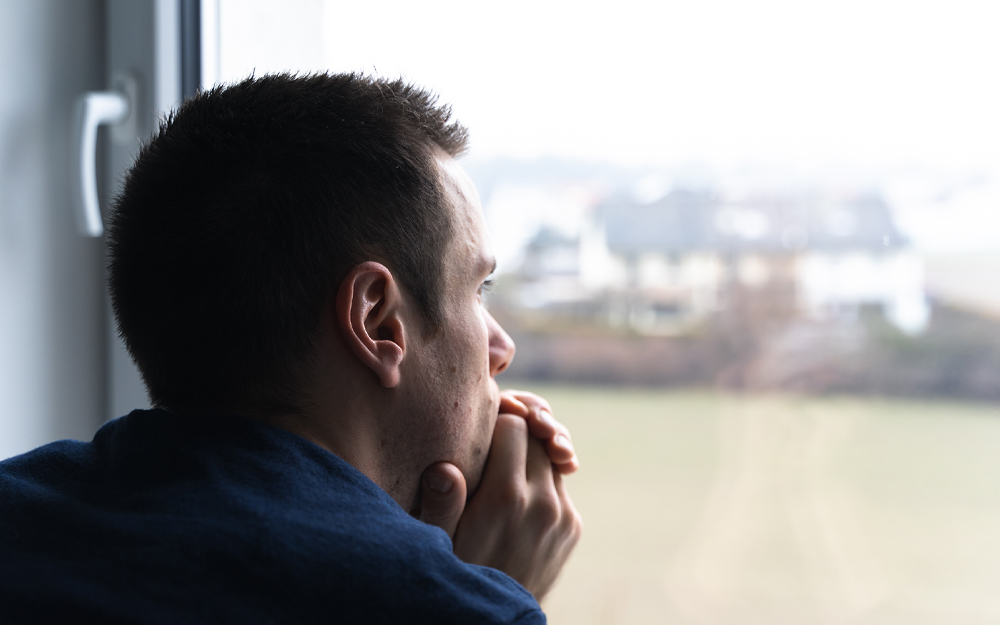Tips to Navigate a COVID-19 Infection in Your Household
Date
January 25, 2022

Date
January 25, 2022
Credits
Medical providers featured in this article
No items found.
In Brief
{{cta-block}}
It can be hard to know what to do if you live with someone who has COVID-19. Whether they're showing symptoms or have a confirmed diagnosis, you'll need to take precautions.
"As a general rule, you should closely monitor your health for at least 10 days after your last contact with the infected individual," says Dr. Jonathan Grein, director of Hospital Epidemiology at Cedars-Sinai.
If you do develop any symptoms, even mild ones, self-isolate right away and get tested (preferably a PCR test). Here are other key steps to consider.
Protect Everyone
- The household member should live in a private room or area for as long as they're infectious. If possible, have them use a separate bathroom too. The latest guidance from the Centers for Disease Control and Prevention states that people are most infectious 1-2 days prior to the onset of symptoms until 2-3 days after symptoms began. However, some people may be infectious for longer, particularly if they still have fevers or their symptoms have not yet improved.
- Make sure you and others in the home avoid contact with the person who is sick. Do not hug or kiss. When you do have to enter their room, maintain physical distance and make sure you're both wearing a mask. A surgical mask, N95 or KN95 is recommended.
- If you have to share space, open windows often to improve airflow and try to sleep at least 6 feet apart.
- Maintain hygiene and don't share personal items. The person who is sick should have their own towels, linens, plates, utensils, glasses and mugs. Do not share cell phones and other electronic devices, and make sure you wash your hands after handling used items.
- Do not go to work and check your employer's policies regarding COVID-19 reporting, testing and isolation.
- Have everyone in the home get tested for COVID-19 immediately after the person was diagnosed or started having symptoms. Those who are fully vaccinated and boosted (if booster-eligible) may not need to quarantine at home as long as they test negative and have no COVID-19 symptoms. Per the CDC, a COVID-19 test should also be performed at least 5 days after your last close contact with the person who has COVID-19. Household members who are unvaccinated or not up to date with their boosters may be required to quarantine at home for at least five days and continue to wear a well-fitted mask around others for at least 10 days. Wear a well-fitted mask at home if you're around anyone that may be infected and at any time while in public.
- If anyone at home develops COVID-19 symptoms, even mild symptoms, they should immediately self-isolate and get a COVID-19 test. If the test is negative, they should consider speaking with their doctor and repeating the test.
- If anyone else tests positive, they should stay home, isolate in a separate room from others who have not tested positive, call a doctor if things get worse or call 911 if emergent symptoms develop.
{{providers}}
Provide support
- Keep over-the-counter medications on hand to help the person who is sick feel better. These include ibuprofen, acetaminophen or aspirin to fight fever, body pain and headaches.
- Help with groceries, prescriptions and other errands so they don't have to go out. Ideally, have items delivered or call a friend to drop things off.
- Encourage the sick person to drink lots of fluids and get plenty of rest.
- If they have their own doctor, keep that doctor's phone number on hand. If symptoms get worse or seem serious, call their doctor. If you notice emergency warning signs, call 911 or seek out the closest emergency facility. Remember our Emergency Department is always available for medical emergencies.
- While pets can be a source of comfort, people with COVID-19 should limit contact with their pets because humans can transmit the illness to animals. If you can, take care of the sick person's pets.




.jpg)
